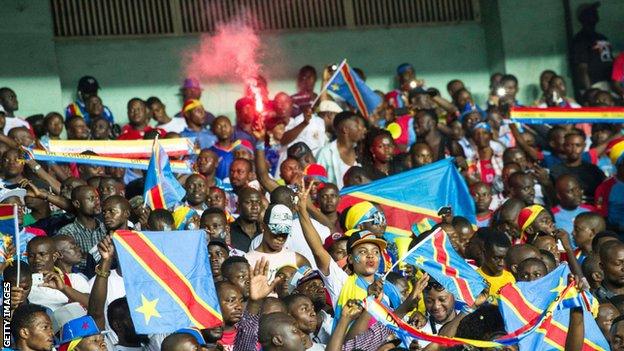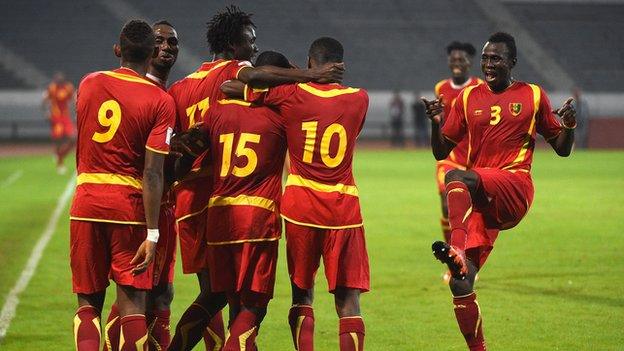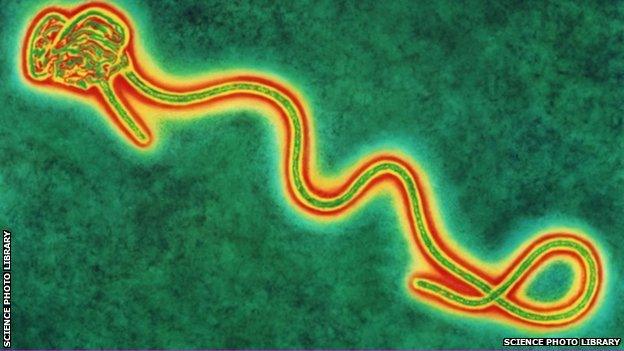Liberia want Afcon qualifier moved from DR Congo because of Ebola
- Published

DR Congo fans at the Stade des Martyrs in Kinshasa
Liberia's FA (LFA) wants the venue for its crucial Africa Cup of Nations qualifier in DR Congo moved out of the country because of concerns over the Ebola epidemic.
The fixture is scheduled for Kinshasa on 24 March with Liberia, who are second in Group G, on seven points and DR Congo on six.
Any two of the group's four teams, which also includes Zimbabwe and Congo Brazzaville, can still qualify for this year's finals in Egypt.
Group G after five matches: | |
|---|---|
Zimbabwe | 8 points |
Liberia | 7 points |
DR Congo | 6 points |
Congo | 5 point |
In November 2018, the United Nations' global health body said the Ebola outbreak in the east of the Democratic Republic of Congo was the second-biggest ever recorded.
Latest figures (as of 12 March) from the World Health Organisation, external say there have been 927 cases and 584 deaths.
The LFA has written to the Confederation of African Football (Caf), saying the current Ebola situation in DR Congo brings back memories of its own tragic past.
"Based on our experience with Ebola in Liberia and the death it brought to most of our brothers and sisters, we believe this could cause a great psychological impact on the minds of our players," said LFA secretary-general Isaac Montgomery.
"(This) could serve as an impediment to our players' performance given our recent past of the Ebola epidemic in our country," added Montgomery in a letter, seen by the BBC, sent to Caf secretary-general Amr Fahmy on 10 March.
Fahmy responded, promising a "follow-up" would be conducted by Caf.
In August 2014, Caf banned Liberia, Sierra Leone and Guinea from hosting international matches because of fears of spreading Ebola - eventually clearing the countries to restage matches in May 2015, December 2015 and January 2016 respectively.
The most widespread Ebola outbreak in history, which began in Guinea in 2013, killed over 11,000 people - mainly in Guinea, Liberia and Sierra Leone - according to the World Health Organisation.
- Published4 January 2016

- Published20 September 2014
